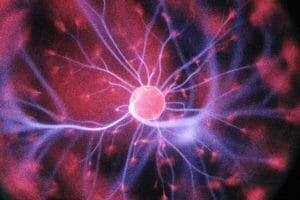Do you know hormones’ role in your fitness and emotional health? Hormones make us who we are. They affect how we act, think, and feel. When you’re sad or happy, it’s because of hormones. Conversely, hormonal imbalances can lead to mood swings and depression and cause physical problems like acne outbreaks or weight gain.
Understanding the hormones that play a role in your emotional health is vital for maintaining good mental health. Read on if you want to improve your emotional well-being with better hormonal balance!
It’s no secret that various factors can influence the way we feel. For example, it is common to experience bouts of depression or anxiety because of hormonal changes in our bodies.
Hormone imbalances are often the root cause of these undesirable feelings and mood swings. Also, we take an in-depth look into what hormones affect your emotional health and how those fluctuations affect your day-to-day life. So keep reading to learn more!

The Endocrine System
Your endocrine system comprises glands that create and secrete different hormones. These hormones control everything from digestion to emotional health, among many other biological functions. Some of these glands include the thyroid gland, the pancreas, and the adrenal gland. But we’ll also inspect the hormones such as serotonin and cortisol.
Hormones and your emotional health
Your emotional health is directly related to your body’s hormones. For example, many adolescents experience mood swings and bouts of depression during puberty. You can attribute these feelings to hormonal imbalances of estrogen and progesterone.
Of course, these changes are entirely regular, but it is essential to remember that hormonal changes can often trigger mood swings. So if you’re ever feeling out of character or not like yourself, there’s a good chance that your hormones may play a role.
It is essential to remember that if you are experiencing frequent mood swings, it is not something that should go untreated. On the contrary, if left ignored or unaddressed, hormonal fluctuations could lead to more severe health problems.
However, there are some things you can do on your own to help adjust the way you feel. For example, here is one tip: When you’re feeling down, try doing things that make you happy. Also, this can include watching a movie, going out with friends, or spending time outside. Also, remember that the changes in your hormones will eventually worsen.
Cortisol
The body releases cortisol, a stress hormone, in response to feelings of fear or anxiety. The hormone makes you feel more on edge when something stressful happens.
While cortisol can be helpful in certain situations, we link too much of it to health problems like depression, weight gain, and increased blood sugar levels. Specifically, high cortisol levels can lead to the medical condition known as Cushing’s disease. Although it is more common among adults, this condition can also affect children.
Dopamine and Serotonin
Dopamine and serotonin are neurotransmitters that affect your mood. They essentially work to send chemical messages to the brain, which create feelings of happiness and well-being. The body triggers these chemicals because of pleasurable and rewarding activities such as eating good food or exercising. This positive effect can also come from caffeine, nicotine, and cocaine. We often call these chemicals “pleasure chemicals” because they create a positive impact when released into the brain. They essentially help your body feel good.
When serotonin or dopamine levels drop too low, it can change mood, sleep patterns, and appetite. Also, this can cause feelings of sadness or even depression. Also, when these chemicals are in lower amounts, they cannot do their job correctly, leading to many diseases.
For example, chronic pain patients often have lower serotonin and dopamine levels. People with lower serotonin levels also suffer from migraines, so doctors prescribe drugs that boost serotonin for this condition. Unfortunately, most antidepressants act as “serotonin reuptake inhibitors” (SSRIs) and prevent the re-absorption of this critical chemical.
Adrenalin and Nor-adrenalin
Adrenaline and noradrenaline are stress hormones that help the body respond to physical or mental threats. In addition, they give your body a boost of energy, which can be helpful in desperate situations.
However, they trigger a more intense response and do more damage than good when facing everyday stress. For example, if you cause a car accident, this adrenaline rush could help you quickly get out of the car and find safety. However, these hormones can do more harm than good when no threat exists.
When these hormones are too high, they can cause headaches, nausea, nervousness, and hypertension. Also, it is essential to note that when these hormones are in excess, people often show signs of anxiety. Also, this is because everyday stress interferes with the ability to handle difficult situations. Therefore, daily stress can lead to heightened levels of these hormones, which can cause even more stress.
Endorphins
Endorphins are hormones that have a pain-relieving effect. They work by reducing the level of pain signals sent from your nerves to your brain. Thus, they act as a natural pain reliever. In addition, endorphins are helpful for injuries when you need to divert your attention away from the pain.
However, they are often present at high levels when no real threat exists. For example, hormones explain why people feel better after exercising or playing sports because of this release of endorphins.
Your body’s release of endorphins can also mask the pain of an injury, making it difficult to determine when your body fully heals. For example, people often say they feel “fine” before going to the doctor, thinking something else caused their pain. However, after a check-up, the doctor reveals they broke a bone, and the endorphins prevent them from feeling pain.
Many people seek endorphins for their positive mood-altering effects. For example, people who experience a “runner’s high” feel better because of the release of endorphins. Also, this is because these hormones can cause feelings of euphoria and happiness.
Oxytocin and Vasopressin
Oxytocin and vasopressin are hormones that have a powerful effect on the bond between a mother and child. They help stimulate various processes in the body, such as lactation, ovulation, and orgasm. In addition, they play an essential role in social behaviors. Therefore, we sometimes refer to them as bonding or trust hormones.
However, if these hormones are present in excess, they can cause mood swings. For example, rising oxytocin levels make women more trusting and men less trusting, leading to misunderstandings between couples.
Hormones explain why some people experience jealousy, aggression, and poor mood swings when stressed. Also, this is because cortisol inhibits the release of oxytocin, which causes suppression of their social instincts.

How to Use Your Hormones to Improve Your Emotional Health?
To benefit from the positive effects of all these hormones helps you understand how and when the body releases them. For example:
1. Cortisol:
Cortisol levels peak in response at about 8 a.m., making this the worst time for people who struggle with anxiety. However, it is essential to understand that cortisol levels are higher in the morning because they help prepare people for the day ahead.
Therefore, scheduling anything significant in the morning makes little sense, as this stress could make you feel overwhelmed or anxious. Conversely, though, cortisol has a positive effect on memory and learning. This hormone also helps down-regulate insulin resistance.
2. Serotonin:
Experts link serotonin to feelings of happiness and well-being. We often refer to it as the “happy molecule” because it can improve mental health and relieve symptoms of depression or anxiety. However, when people are under chronic stress, their bodies release less serotonin. Also, this is because the body turns to the manufacture of the hormone cortisol when it faces pressure and can turn off the production of serotonin.
3. Dopamine:
Dopamine brings satisfaction and pleasure when the body releases it into your bloodstream. Unfortunately, dopamine can also lead to addictions and compulsive behaviors when too high in the body. That’s why gambling or shopping often makes people feel good because these activities release dopamine. However, this substance can also help people overcome addictions, especially at low levels.
4. Adrenalin and Nor-adrenalin:
When your body releases adrenaline into the body in response to stress, it causes what many people describe as a “fight or flight” feeling. But conversely, this rush of energy can cause anxiety when the body releases too much adrenalin into the bloodstream.
Similarly, noradrenaline “triggers a response similar to adrenaline” and can cause what many people describe as a “fight or flight” feeling. However, it is essential to note that this hormone can lead to states of hypoglycemia when levels are too high in the body.
5. Endorphins:
Many people describe endorphins as the body’s natural painkillers because this hormone “overrides feelings of pain” when the body releases it into the bloodstream in response to stress. However, these hormones also improve mood and relieve tension. Although endorphin levels are higher during strenuous activity, research has shown that endorphin levels are also higher in people who laugh or even smile.
6. Oxytocin:
The body releases this hormone when your blood pressure is low, and it can reduce feelings of anxiety, stress, irritability, sadness, and fatigue. Experts refer to oxytocin as the “love hormone” because it helps create intimacy and bonding in people.
The Last Word on How Hormones Affect Emotional Health
Besides understanding how all these hormones function, it is also important to consider stress management. For example, exercise can help release these substances into the body and improve a person’s mood. People also need proper nutrition for their bodies to create these substances.
Also, getting 8 hours of sleep improves your hormones and their response to your environment. Although this article does not discuss the importance of food, readers need to know that stress management can help them manage their cortisol levels, serotonin, dopamine, adrenalin, noradrenaline, endorphins, and oxytocin.
If you or someone you know is looking to improve your health, share this article on Facebook or Twitter so that others can learn more about self-care.




